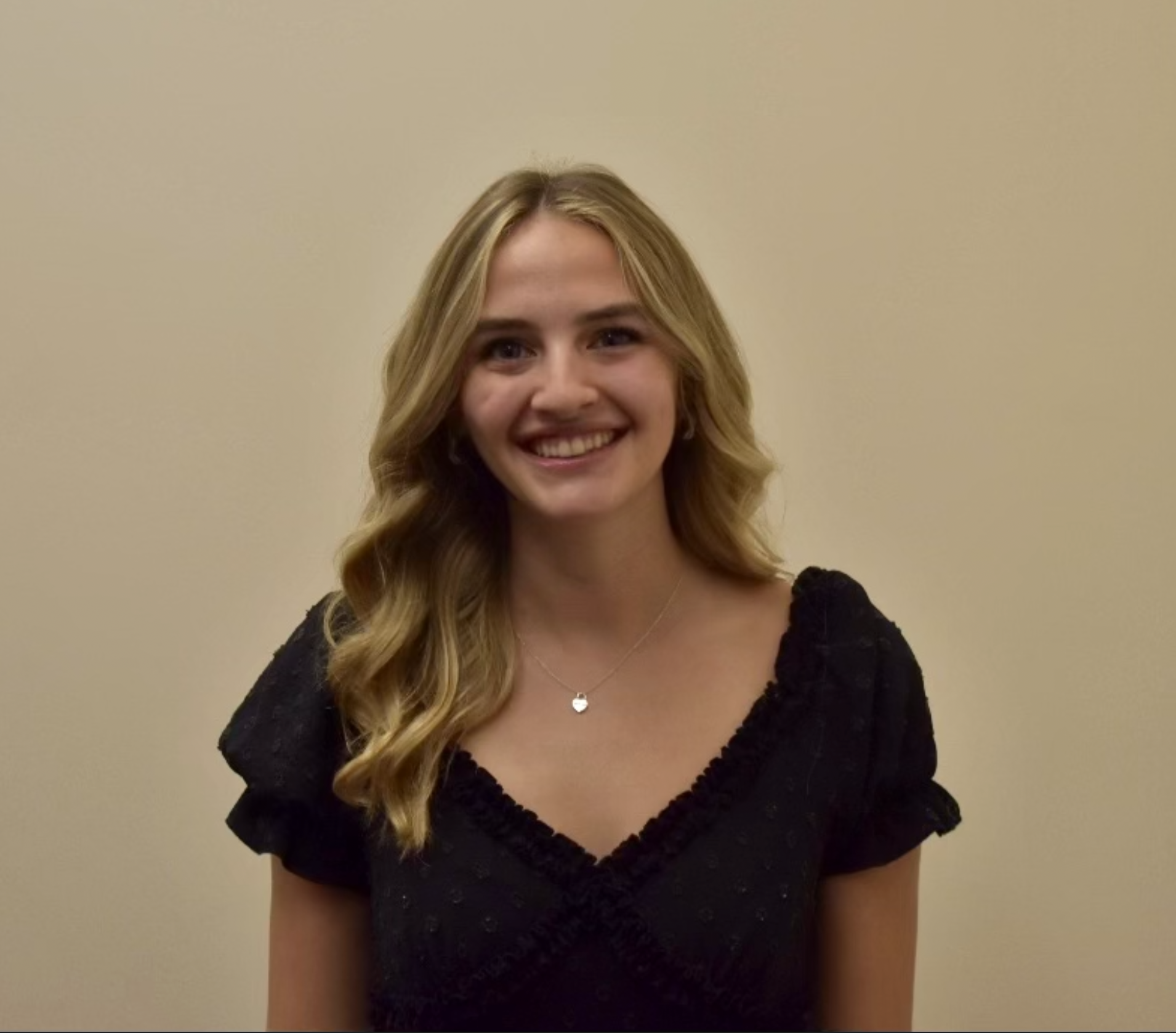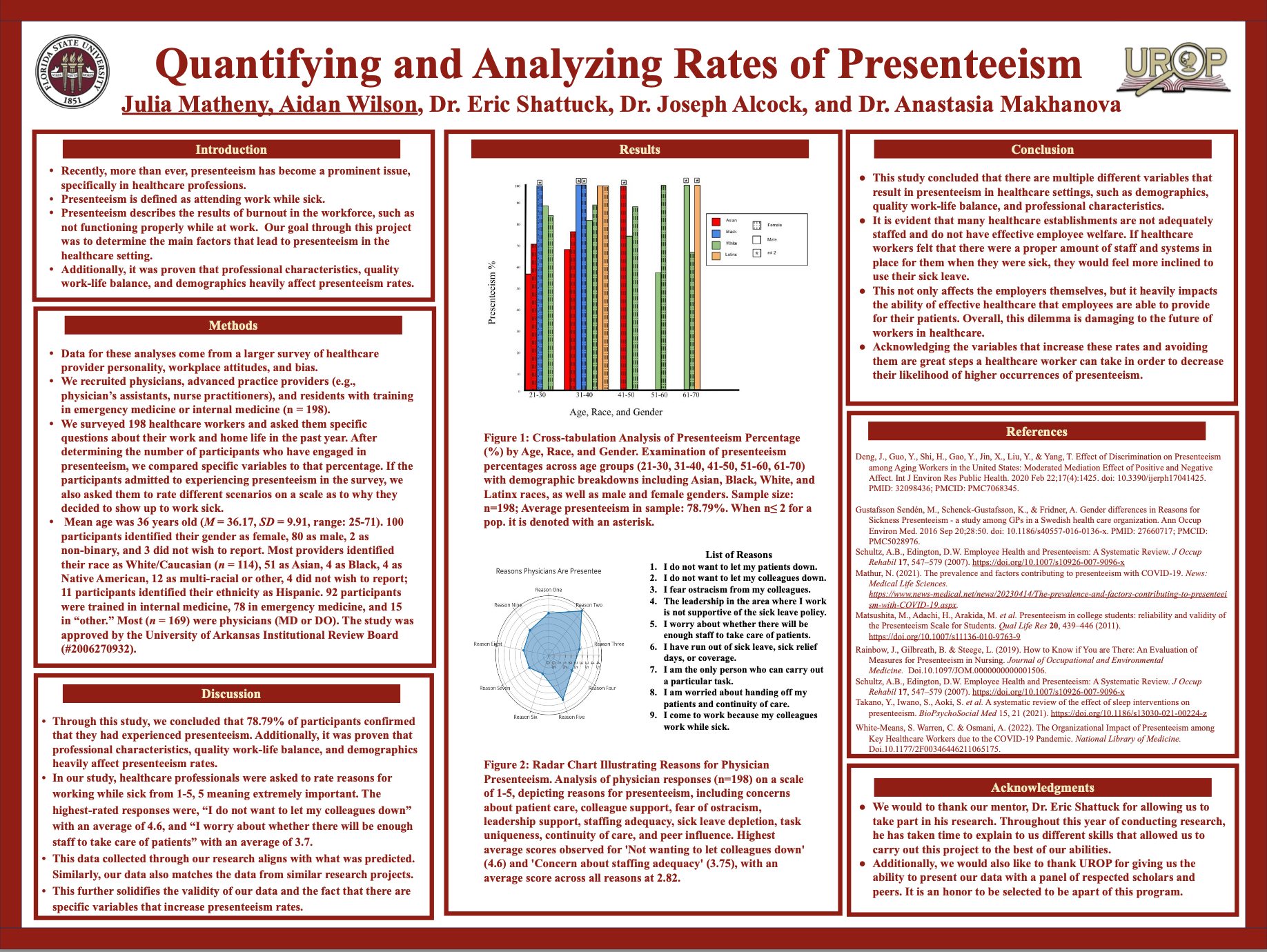Research Symposium
24th annual Undergraduate Research Symposium, April 3, 2024
Julia Matheny Poster Session 4: 2:45 pm - 3:45 pm /12

BIO
My name is Julia Matheny, I am from Tampa, Florida, and my major is IMS Clinical Professions on a Pre-Dental track. After I graduate college, I plan on attending dental school with the hopes of becoming an oral surgeon. My research project, Quantifying and Analyzing Rates of Presenteeism, is about exploring the rates and reasons people working in healthcare still come to work while they are sick. My whole life, I have always known that I wanted to work somewhere in the medical field, but I had no realistic expectations of what the work week would look like. With this in mind, it has been an honor to be able to work alongside Dr. Eric Shattuck and not only learn about what real healthcare schedules look like but also why some healthcare workers have begun to experience burnout due to overworking themselves when sick.
Qualifying and Analyzing Rates of Presenteeism
Authors: Julia Matheny, Dr. Eric ShattuckStudent Major: IMS Clinical Professions
Mentor: Dr. Eric Shattuck
Mentor's Department: Anthropology Mentor's College: BA = University of Georgia; MS = SUNY Binghamton; PhD = Indiana University Co-Presenters: Aidan WIlson
Abstract
Recently, more than ever, presenteeism has become a prominent issue, specifically in healthcare professions. The term presenteeism describes the results of burnout in the workforce, such as not functioning properly while at work. Although this term has been defined and recognized by many prestigious sources, the leading causes of presenteeism in healthcare have yet to be determined. In our study, we surveyed 198 healthcare workers and asked them specific questions about their work schedule, profession, sleep, and opinions about their presenteeism rates. Through this study, we concluded that 78.79% of participants confirmed that they had experienced presenteeism. After determining the number of participants who have experienced presenteeism, we compared specific variables to that percentage. By doing this, we discovered the main correlations that resulted in high presenteeism rates. If the participants admitted to experiencing presenteeism in the survey, we also asked them to rate different scenarios on a scale as to why they decided to show up to work sick. Additionally, it was proven that professional characteristics, quality work-life balance, sleep, and demographics heavily affect presenteeism rates.
Keywords: Burnout, Healthcare, and Sickness


